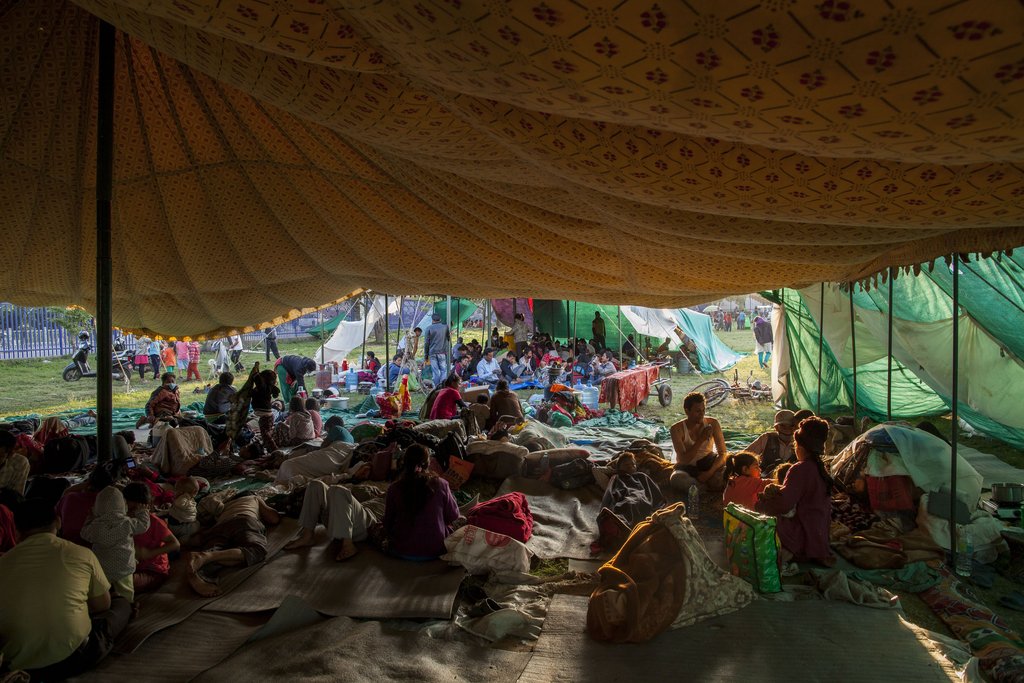By Brad Kerner | Emergency Responder
Nestled in the majestic Himalayan mountains, Nepal is near the top of the world and home to Mount Everest. I’ve always been in awe of the snowy peaks and fond of the gentle Nepalese children I’ve had the honor to work with over the years.
I was hiking with friends on the rim of a pristine lake. We were enjoying our day off, celebrating a colleague’s birthday. Then suddenly in the distance, we saw buildings start to shake. Then the rumbling sounds started. People ran out of buildings, but the shaking ground knocked them off their feet like game pieces on a chessboard that had been turned over. We felt the ground shake as the shockwave came crashing toward us. We huddled together, instinctively, for stability. I’ve never been more frightened in my life – I was paralyzed with fear and clung to my friends for dear life. We watched as buildings collapsed and houses came crashing down. The sounds of destruction and dogs barking filled our ears. The quake lasted little more than a minute – but it felt like an eternity.
At first, we didn’t know the extent of the damage. Communications were down. My wife saw the news back in the states and was frantically trying to contact me. Thankfully, she reached me within a few hours.
We slept in a tent for the night and then headed back to Save the Children headquarters in Kathmandu, where our staff was readying our response to the disaster. What’s typically a 4-hour trip took more than 7 hours, but we were grateful that the roads were relatively intact. So many homes have been damaged and destroyed. The aftershocks make it unsafe to be inside. It is still cold here in the mountains, and it rained last night, but people are fearful to return to their homes and are sleeping outside in makeshift tents.
Our teams have been working around the clock in response to the earthquake. The first phase includes the distribution of emergency supplies like tarps and other materials children and families need to survive. The next phase will also include protecting children who have been orphaned or separated from their families during this tragic disaster. As a public health professional, I have great concerns about the potential for the spread of disease in the coming days. With little or no access to clean water and proper sanitation, conditions are ripe for diarrheal diseases, such as cholera. These diseases are already the second leading cause of death for young children around the world.
We are doing everything we can to keep children safe from harm and help families recover in the aftermath of the earthquake. We have more than 500 highly trained staff members in Nepal, many of whom have received intensive emergency response training. We are so grateful for the outpouring of support from our donors that will enable us to give children what they need to survive this horrific disaster and recover in the days, weeks and months to come. On behalf of Nepal’s children and families, thank you.
Project reports on GlobalGiving are posted directly to globalgiving.org by Project Leaders as they are completed, generally every 3-4 months. To protect the integrity of these documents, GlobalGiving does not alter them; therefore you may find some language or formatting issues.
If you donate to this project or have donated to this project, you can receive an email when this project posts a report. You can also subscribe for reports without donating.
